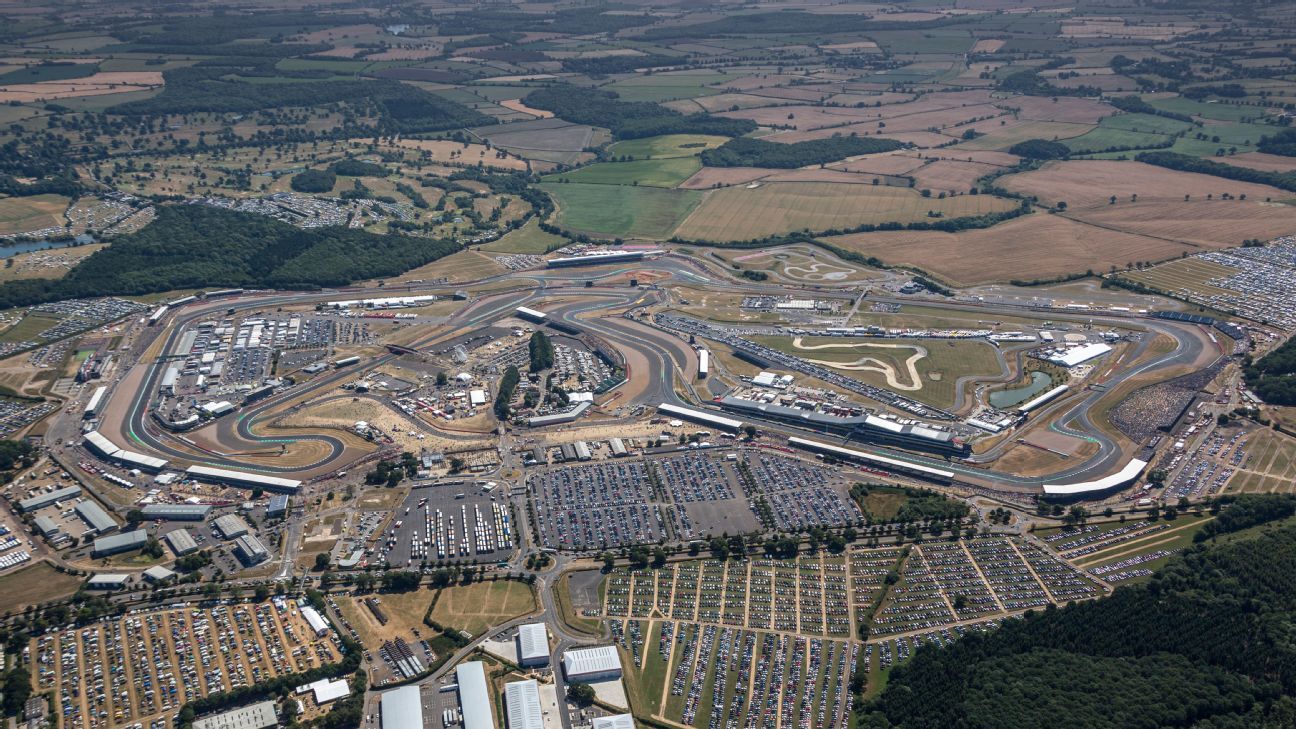The first eight races of the 2020 Formula One season have either been postponed or cancelled due to the coronavirus pandemic, but once it is safe to do so Formula One is hoping to stage a 15-to-18-race calendar over the remainder of the year.
What is left of the existing calendar is likely to be torn up in order to fit as many races into the season as possible, but Silverstone is still in discussions with F1 about keeping its original date.
With other British sporting events, such as Wimbledon’s tennis championships and golf’s Open, expected to make announcements in the near future, Silverstone made clear that it has until the end of April to decide the British Grand Prix’s fate.
“Silverstone and Formula One remain in close dialogue regarding the ongoing situation and are assessing the feasibility of holding the British Grand Prix on 17th-19th July,” a statement from the circuit said. “We fully appreciate that other UK sporting events in July have taken decisions regarding their events, but it is important to highlight that their logistics and sporting arrangements differ from Silverstone’s and, therefore, our timeline gives us until the end of April to make a final decision.
“The safety of our fans, colleagues and the F1 community will be our priority and we will continue to engage with the appropriate authorities.”
The first race from the original 2020 calendar that has not confirmed either its postponement or cancellation is the Canadian Grand Prix on June 14, but it is due to make a decision by the Easter weekend of April 11-12 on whether to push ahead.
Assuming the Canadian Grand Prix does not take place as planned, the French Grand Prix on June 28 becomes a logical target to start the season and its organisers plan to leave their decision as late as possible.
“We could basically try to go to the 20th of June and see if we have to cancel it or not,” French Grand Prix managing director Eric Boullier told Racer.
“But operationally we might have to downsize the capacity at some stage because we will not have enough time anymore to build enough grandstands, for example. So that’s our only limitation, but we don’t have an exact deadline, let’s say.”
F1 has been keen to stress that it will go racing as soon as it is safe to do so and that the dates on the existing calendar should not be seen as a series of potential season openers to be ticked off with either postponement or cancellation.
After agreement among the teams, F1 and the FIA have been given the power to adapt the calendar as they see fit. Prior approval and changes to race weekend structures — such as two-day events instead of three — only require support from 60% of the teams.
